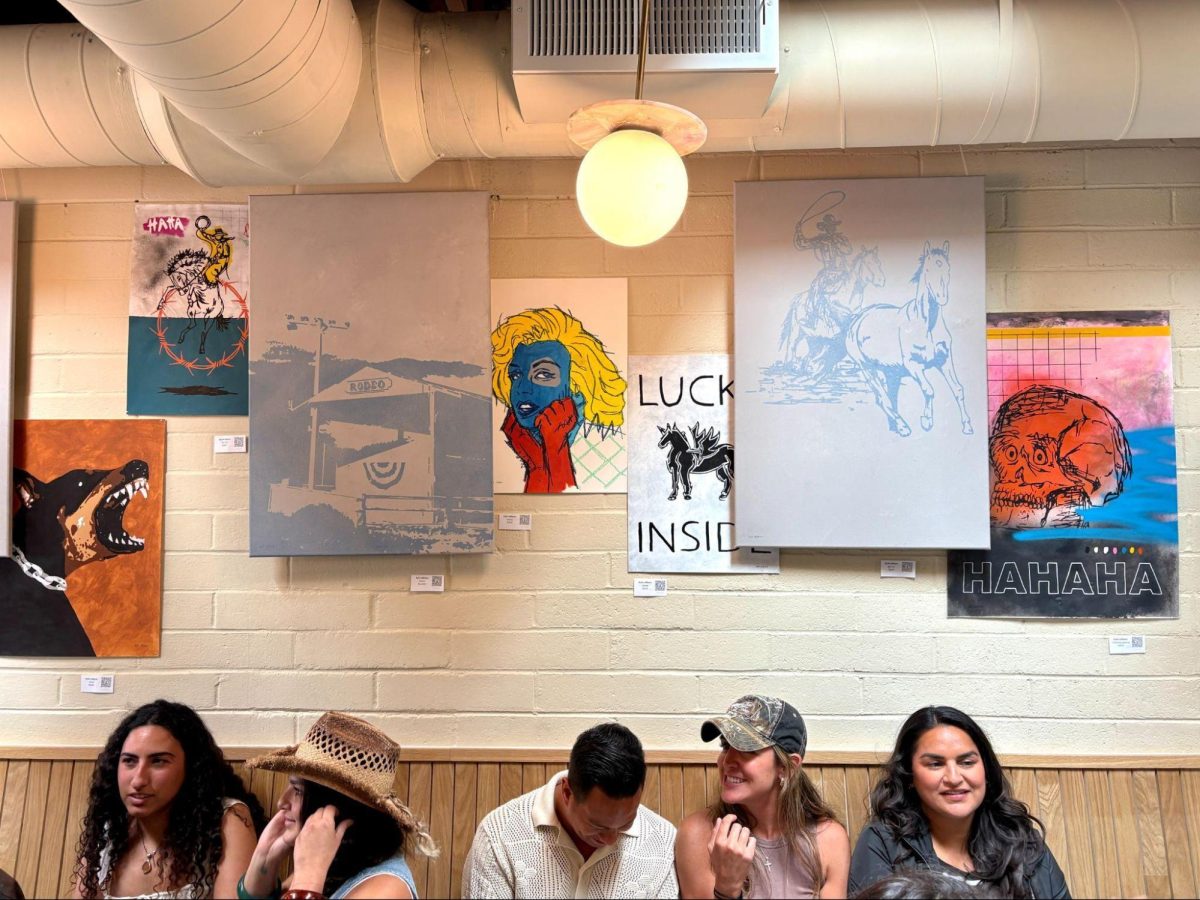As part of San Diego State University’s observance of Black History Month, the Department of Africana Studies held the third lecture in its Black History Month Lecture Series at 3 p.m. on Thursday, Feb. 20.
The featured guest speaker was Dr. Kishauna Soljour, Associate Director of the Center for Public and Oral History and Assistant Professor in the Department of Classics & Humanities at SDSU. Soljour’s research focuses on social change in the African Diaspora in the modern era and she has developed many initiatives aimed at making history accessible to the public.
A far cry from a lecture hall, the tiny room in the Engineering building was crowded with students, most of whom attended as part of an extra credit assignment. The door was left open, and a couple of attendees watched from outside.
The lecture explored the history of French cinema made by African immigrants and the complex, evolving relationships between Africans, their sense of self, and French society.
It celebrated pioneering African directors, like Mamadou Sarr and Paulin Soumanou Vieyra, who, in their short film, “Afrique-sur-Seine” (1955), challenged the idea that Paris was all-white by portraying the multitude of experiences of Afro-French immigrants.
Vieyra believed that France cannot accurately portray the experiences of African people, because white supremacist, imperialist French filmmakers always took an orientalist lens when depicting African culture. Instead, “African cinema” had to be born, and African filmmakers needed to speak for themselves.
Dr. Soljour then discussed more recent films that offer a plurality of perspectives on different issues of gender, class and diasporic identity. The subjects of these films encounter clashes between their African and French cultures and seek to find themselves.
For example, “Maman(s)” (2015), a short film written and directed by Maïmouna Doucouré, follows a young girl’s heartbreak after learning her father has taken on a second wife, which is a tradition in their Senegalese culture, but considered immoral in France. The César Award-winning film, “Vers la tendresse” (2016) by Alice Diop, explores how Black and Arab men have been societally shamed out of expressing love and affection. “Une Africaine Sur Seine” (2015), by Ndeye Gueye, questions Vieyra’s “Parisian dream” 60 years after the original film.
Dr. Soljour emphasized the more political aspects of this history, too. During the colonial period, France attempted to censor African filmmakers by banning all films that were thought to have anti-colonialist messages. Now that African cinema has come into its own, Afro-French filmmakers stress the importance of portraying France’s true diversity.
At the end of the lecture, Dr. Soljour pointed out that race is no longer legally recognized by the French constitution. While has been celebrated by some politicians as being a step toward “equality”, it also removes the ability for Afro-French people to advocate for themselves in court when they do face racism.
Here in America, the second Trump administration has started to ban “diversity, equity, and inclusion (DEI)” and attempted to cut funding to public institutions, including universities, that continued “DEI” or affirmative action policies. The Department of Defense declared “identity months dead” on Jan. 31 and barred observance of Black History Month. Broadly, there seems to be a similar trend toward silencing discussions of race across the country–including celebrating the accomplishments of marginalized people.
Dr. Anta Anthony Merritt, assistant professor of Africana Studies and co-organizer of the lecture, said on this issue, “[A diverse education] has become a political thing, but it’s not, in essence, a political thing, it’s an issue of identity and understanding of each other.”
When asked about the future of Black History Month in light of these events, Dr. Soljour remained optimistic. “I think Black History Month existed before the bans and they’ll continue to exist. So, if we participate in them, then they’ll continue, whether bans exist or not,” she said.
The national theme for this year’s Black History Month is “African Americans and Labor”, focusing on “the various and profound ways that work and working of all kinds – free and unfree, skilled and unskilled, vocational and voluntary – intersect with the collective experiences of Black people.”
Other Black History Month events have included the “Hidden Figures” Competition, testing students’ mathematical prowess, “The Immortal Henrietta Lacks”, exposing “the science and ethics behind HeLa cells”, and the “Black Film Festival”, which showcased classic Black films over two days last week.
The two previous lectures in the Black History Month Lecture Series were on the “Archaeology of Nathan Harrison” by Dr. Seth Mallios and “The Kushitic Calendar” by Dr. Asfaw Beyene. The final lecture discusses “Reshaping Black Male Self-Identity” and will be held on Zoom at 3 p.m. on Feb. 26.






